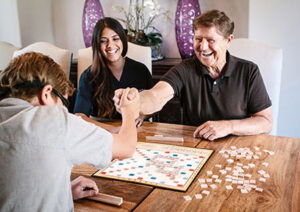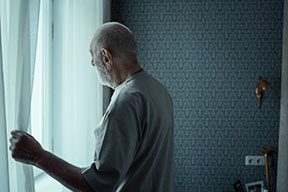As we approach National Rehabilitation Week, it’s the perfect time to reflect on the important role rehabilitation plays in improving the quality of life for seniors. Rehabilitation can be a key factor in helping seniors regain their independence, maintain mobility, and improve overall health. Whether recovering from surgery, a fall, or managing chronic conditions, rehabilitation offers a pathway to a healthier and more fulfilling life for our aging loved ones.
Why Rehabilitation is Crucial for Seniors
As we age, physical limitations can become more apparent, and the risk of injury or illness increases. According to LTCNews, each year about 17% of seniors aged 65 and older will endure a hospital stay for surgery, illness, or a fall or other accident. Rehabilitation services provide targeted therapies to help seniors recover from physical setbacks, such as hip fractures, strokes, or surgeries. The goal is not only to restore physical function but to promote long-term well-being by addressing pain, balance issues, and mobility challenges.
Common types of rehabilitation include physical therapy, respiratory therapy, pain management, and management of a chronic condition. Here’s how rehabilitation can make a difference in senior health:
Improving Mobility and Strength
One of the primary goals of rehabilitation is to improve physical mobility and build strength. Physical therapy, a common aspect of rehab, focuses on exercises that enhance flexibility, balance, and muscle strength, allowing seniors to move more easily and safely in their daily lives. This can help prevent falls, which are a leading cause of injury among seniors.
Enhancing Cognitive Function
Cognitive rehabilitation therapy is designed to help seniors regain mental sharpness, especially after a stroke or traumatic brain injury. This type of rehabilitation can involve activities that improve memory, problem-solving, and communication skills, making it easier for seniors to engage in social activities and maintain a sense of independence.
Managing Chronic Pain
Chronic pain, whether from arthritis, osteoporosis, or post-surgical recovery, can significantly impact a senior’s quality of life. Rehabilitation programs often include pain management strategies like physical therapy, occupational therapy, and even massage, helping seniors manage discomfort and improve their ability to perform everyday tasks without pain limiting them.
Regaining Independence
The ultimate goal of rehabilitation is to help seniors regain as much independence as possible. By working on everyday skills—whether it’s through occupational therapy to improve dexterity or speech therapy to restore communication abilities—rehabilitation empowers seniors to continue living fulfilling lives on their own terms.
How Amada Senior Care Services Supports Rehabilitation
While we specialize in non-medical senior care, our caregiver services play a critical role in supporting seniors during their rehabilitation journeys. After a senior has completed formal rehab sessions, ongoing care at home becomes vital to maintaining the progress they’ve made. Our trained caregivers can assist with:
Daily Living Activities: From helping with mobility around the home to ensuring they adhere to prescribed exercises, we provide the extra support seniors need to stay on track with their rehabilitation goals.
Transportation Assistance: For seniors who need to attend physical therapy or follow-up appointments, we offer transportation services, ensuring they never miss an important rehab session.
Medication Reminders: Proper medication management is often crucial during rehabilitation, and our caregivers can help seniors stay on top of their prescriptions, preventing missed doses that could hinder recovery.
Companionship and Emotional Support: The road to recovery can be challenging, both physically and emotionally. Our caregivers offer companionship and encouragement to help seniors remain motivated and positive throughout their rehabilitation process.
Supporting Senior Health Beyond Rehabilitation
Rehabilitation plays an essential part of senior health, but the journey doesn’t end when formal therapy does. At Amada Senior Care, we are committed to supporting seniors in maintaining their health, independence, and overall quality of life long after rehabilitation. Whether it’s assisting with daily tasks, offering a helping hand, or simply providing emotional support, we are here to ensure that a senior’s recovery continues smoothly in the comfort of their home. Amada caregiving services also can support a family caregiver who needs a break to take care of other obligations or pursue self-care.
As we celebrate National Rehabilitation Week, let’s take a moment to acknowledge the life-changing role rehabilitation can play for seniors and the support they need to achieve lasting wellness. For more information on how we can support you or your senior loved one’s rehabilitation and caregiving needs, contact us today. CLICK HERE to find an Amada office near you.















